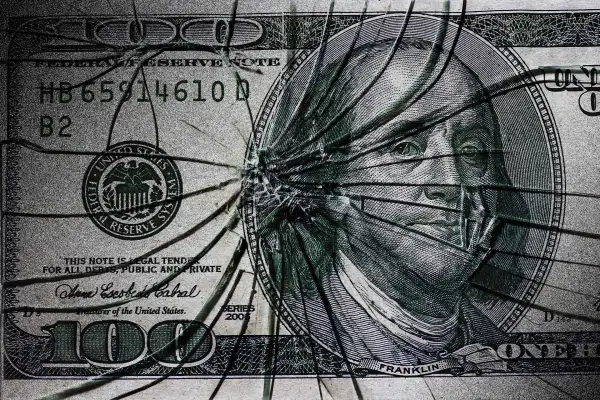The Chances of a 2023 Recession Are Changing Quickly

If you asked any financial expert over the past couple of months about how the U.S. economy was doing, you almost certainly heard them ominously predict that we’re heading for a recession in 2023.
But now, they're starting to sound a lot more optimistic. One prime example: Goldman Sachs slashed the probability that the U.S. will enter a recession in the next year to 25%. That's down from a 35% forecast in the spring following the failures at Silicon Valley Bank and others.
The investment banking firm lowered the chances of the U.S. sliding into a recession largely because the banking industry has stabilized since March, and a U.S. debt default — which was overall unlikely but nonetheless had the ability to decimate the economy — was averted by a last-minute debt-ceiling deal.
Another clear indicator that a recession isn’t likely? Another "gangbusters" job report for May, as University of Michigan Economics Professor Justin Wolfers said in a podcast episode released Wednesday. The U.S. added 339,000 jobs in the month of May, its 29th consecutive month of job growth.
The exact definition of a recession is tricky to pin down.
- It’s commonly thought that two consecutive quarters of gross domestic product (GDP) decline spells out a recession, but it’s not that simple.
- There’s actually a group of academics at the National Bureau of Economic Research who are formally in charge of defining when a recession begins and ends.
- NBER’s definition of a recession is "a significant decline in economic activity that is spread across the economy and that lasts more than a few months.” The last recession was between February and April of 2020, at the onset of the COVID-19 pandemic.
Wolfers has a different take.
“The opposite of a recession is when we’re creating jobs, and the extreme opposite of a recession is that we’re creating jobs faster than usual,” he said, adding that is true of the job market “this month, last month, the one before that and the one before that.”
What the experts say
Not all economists are as enthusiastic as Wolfers, but many of the nation’s top economic minds appear to be shifting gears on the likelihood of an impending U.S. recession.
“This economy is incredibly resilient, despite all the slings and arrows — despite the banking crisis, rate hikes, the debt ceiling,” Mark Zandi, chief economist at Moody’s Analytics, told CNN Friday.
In January, Zandi forecasted that the economy would struggle with rising unemployment, saying it would fall into a “slowcession.” But after the strong jobs report in May, he told CNN that “a lot of economists who have called for a recession are now in the uncomfortable position of pushing back the start date.”
Similarly, Larry Summers, a former Treasury Secretary and former director of the National Economic Council, pointed to the May jobs report as evidence that the economy is doing just fine.
“The forecasting community has got to do a little soul-searching,” Summers said on Bloomberg TV over the weekend.
Last summer, an economic analyst named Kyla Scanlon coined the now-viral term “vibecession” to explain the phenomenon where the economic data says things are going well but people’s feelings about the economy are on the decline.
Everyday Americans are indeed still feeling glum, according to Gallup. The research firm’s latest economic index reading is minus-43, on a scale of minus-100 to 100 (where zero means an equal amount of Americans feel that the economy is doing well versus those who say it's doing poorly). This reading is historically very low, but it's an improvement from last June — when inflation peaked at 9.1% and Scanlon invented her famous term.
By almost all metrics, the economy has been improving since then, but many people’s perceptions of it are still quite negative.
“The vibe is recessionary,” Wolfers, of the University of Michigan, noted during the podcast. “The reality, though — which is reflected in statistics — is not.”
3 Best Money Moves to Make This June
Why 62% of Workers Want to Quit Their Jobs (or Already Have)

